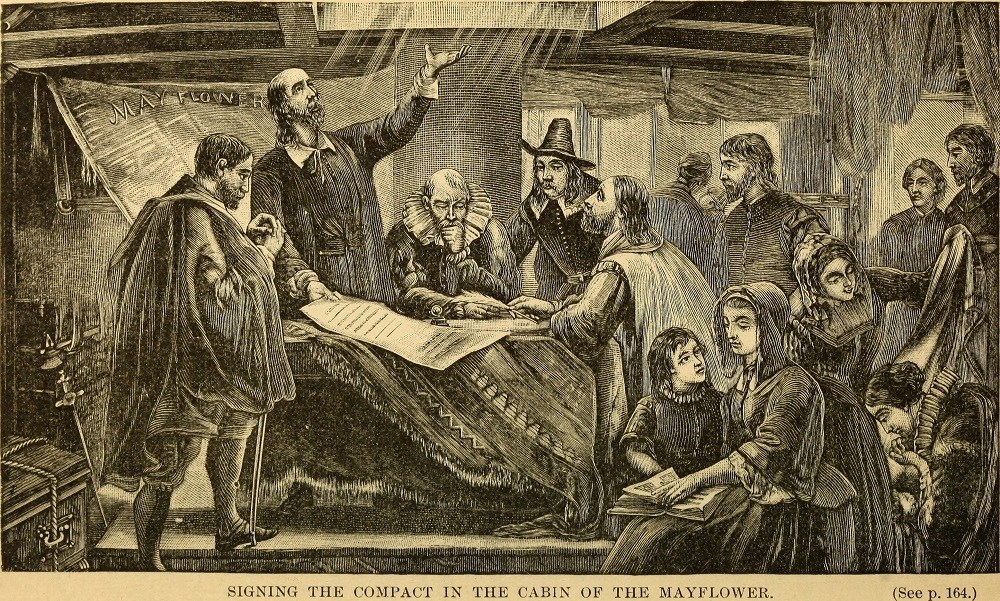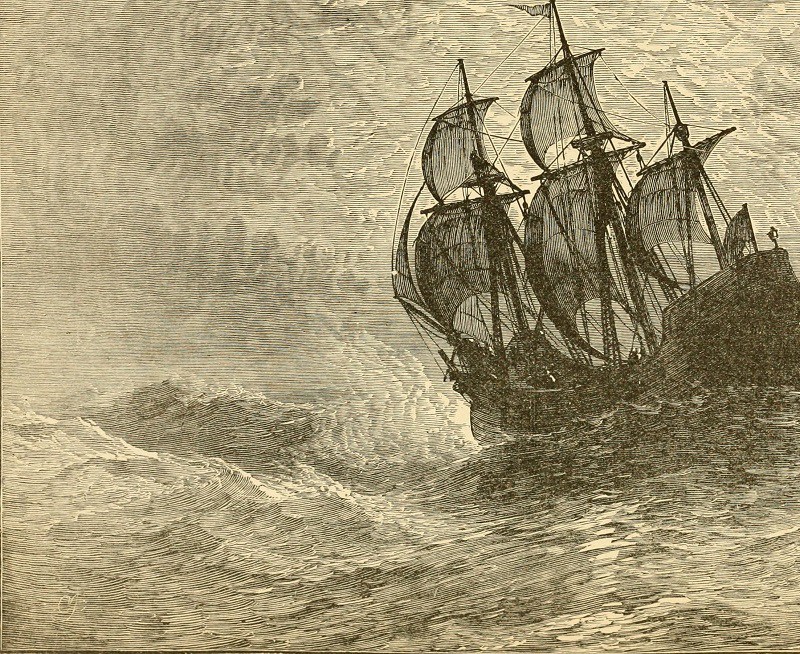
© 2018 Don Pinson | [Download]
(Link not working? Right-click and select “Save As”.)
The ship rode the waves in Cape Cod Bay in a restless sort of way. The voyage just completed had lasted sixty-six days. The last six weeks had been in unbelievable storms. At one point, the Mayflower had nearly gone to the bottom. Only by a miracle was a broken beam repaired with a tool that was supposed to have been left on the dock in England. There were other difficulties and the hard voyage had left the Pilgrims sea-weary and sick.
And yet, before they got off the ship, a document must be written and agreed upon by all those who would be making their home in America. The document would come to be known as the Mayflower Compact. Those governmental principles now make America the oldest living Republic in world history.
This government form was not new to the Pilgrims. Their Pastor, John Robinson, had taught it to them from the Bible and they had walked in this form since 1606, the year they had first formed their church covenant, or agreement. The Bible had taught them that all who were willing to agree on the form of government they would use, and the laws by which it would be operated, should be allowed an equal voice in it.
They believed this because they had discovered that the Bible taught that all governmental authority came from God. And since they had let God come to live inside them, they believed that He could rule through them; by their voice and their vote. Their “town meetings” would be the voice of the people, discussing and choosing the laws they would live by. Some have called these “town meetings” pure democracy. But this shows our present ignorance of the ideas by which the Pilgrims lived. In reality, this was the democratic element of a republic at work.
In other words, the people were choosing laws which had their foundation in the law of God! These New England settlers understood that their laws must agree with the law of God, or they were not valid, for the Bible said,
“…the LORD is our lawgiver…” (Isaiah 33:22)
As William Blackstone, the renowned English jurist our Founding Fathers so respected, would put it, “…no human law should be allowed to contradict these,” referring to the laws of the Bible.

The Pilgrims had been taught by their Pastor, John Robinson, that all civil government actually began with internal self-government. To them, self-government was what Christianity was all about. If Jesus was Lord in the individual life, He would be Lord of that life when it became a government servant. Thus, the same indwelling life of Christ would produce order in civil government that had produced order in the individual, family, and church life.
They believed God wanted to demonstrate through their families, church, and their institutions in their local community, that His way worked in this present world, not just in eternity. They believed the Bible taught the most practical ways to live life on this earth. Those ways were the only truly successful ways. Pastor Robinson had written a Farewell Letter to help them stay focused on this vision. He wrote,
“Lastly, whereas you are become a body politic, using amongst yourselves civil government, and are not furnished with any persons of special eminency above the rest, to be chosen by you into office of government; let your wisdom and godliness appear, not only in choosing such persons as do entirely love and will promote the common good, but also in yielding unto them all due honor and obedience in their lawful administrations…”
(Robinson, John. Robert Ashton, ed., The Works of John Robinson, Pastor of the Pilgrim Fathers (London: John Snow, 1851), Vol. 2, pp. 140-141.)
Could our lack of internal self-government be the real reason for our disordered civil governments?
Think about it; because if you don’t, someone else will do your thinking for you—and for your children! And you won’t like what that brings to you. I’m Don Pinson; this has been Think About It.
